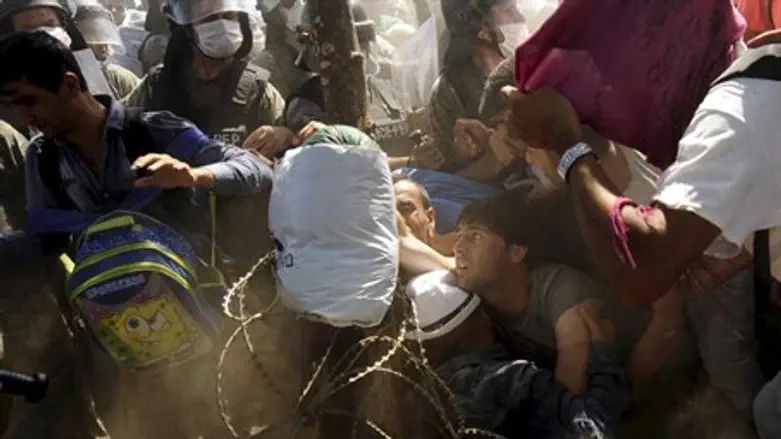
Honduran authorities have arrested five Syrians intending to make it to the United States with stolen Greek passports, triggering alarm Wednesday in the wake of the Paris attacks launched by Syria-linked jihadists, AFP reported Wednesday.
"Five Syrian citizens have been detained and will be taken to our offices to be investigated because it is suspected they are carrying false documents, passports stolen in Greece," a police spokesman, Anibal Baca, was quoted as having told reporters.
The Syrians were arrested on Tuesday as they flew into Toncontin airport serving the Honduran capital and failed to make it past airport security checks, Baca said.
They had traveled by air from Syria to Lebanon, then to Turkey, Brazil, Argentina, Costa Rica and then to Honduras.
From there they were to make their way to Honduras' second city of San Pedro Sula with the aim of going overland through Guatemala then Mexico and on to the United States, Baca told AFP.
The reasons for the Syrians' trip was not immediately known, and Honduran police were considering the possibility that they were refugees fleeing the war in Syria.
"We are not saying they are terrorists," Baca said. "They are being investigated for using false passports. It could be they are fleeing war. That is being investigated."
The timing of the arrests is of significance given last week’s terrorist attacks in Paris. A Syrian passport found by police at the scene of the mass shooting at the Bataclan concert hall belonged to an asylum seeker who registered as a “refugee” on a Greek island in October.
French police said the document was found "near the body of one of the attackers" at the Bataclan concert hall, where 82 people were killed.
Countries involved in the Syria conflict, including the United States, have been on alert for possible attacks since the killings in Paris last Friday and the October 31 bombing of a Russian passenger jet leaving Egypt.
Both attacks have been linked to the Islamic State (ISIS) group, which earlier on Wednesday revealed it had blown up the Russian plane using an improvised explosive device hidden in a soda can.